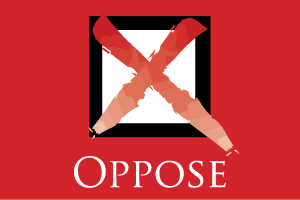The California Chamber of Commerce Board of Directors has taken positions on the following initiative proposals, which have not yet qualified for the ballot:
- The California Consumer Privacy Act—OPPOSE
- The Affordable Housing Act—OPPOSE
- Fair Pricing for Dialysis Act—OPPOSE
California Consumer Privacy Act—OPPOSE
The measure amends California statutes to require businesses to provide a copy of any personal information to consumers upon request, allows consumers to opt out of the business sharing or selling personal information, and provides for new causes of action and penalties on businesses.
The proposed initiative would add new California statutes that establish an opt-out regime to businesses sharing or selling consumer information. The breadth of the initiative encompasses all business sectors. The initiative applies to any for-profit business that has $25 million gross revenue, or buys, sells, or shares information of 50,000-plus consumers, or derives 50% or more of its revenue from selling consumer information. Nonprofit and governmental entities are not covered directly. However, the initiative could have significant impacts on how information is shared with these entities.
The CalChamber Board voted to oppose this measure because it poses grave risks to the business community and potentially the state’s economy. It has an impact on businesses across every sector and would be particularly harmful to the data-driven economy that generates a significant portion of the state’s revenue. In addition, the measure creates a strict liability litigation regime that would increase both the incentives for filing class action suits and the damages in those suits. Some businesses may decide the best way of adapting to the new requirements would be to relocate out of state.
The Affordable Housing Act—OPPOSE
Vote No on Proposition 10: It makes a bad problem worse (9/10/2018)
The Affordable Housing Act proposes to repeal the Costa-Hawkins Rental Housing Act in its entirety. Under the initiative proposal, cities and counties can regulate rents for all types of housing regardless of age. They also can regulate how much a landlord may increase rents between tenants.
Before 1995, state law was silent regarding the adoption of local rent control laws. Case law provided that rent controls are a valid exercise of a city’s police power so long as the controls are reasonably calculated to eliminate excessive rents while providing landlords with a “just and reasonable return on their property” (Birkenfeld v. Berkeley (1976) 17 Cal.3d 129). Cities with rent control laws were afforded a high degree of flexibility to shape their policies.
In response to the wave of rent control laws passed in the 1970s and 1980s, there were numerous attempts over the years in the courts, the Legislature, and at the statewide ballot, to preempt local rent control. These attempts were unsuccessful until 1995, when the California Legislature passed and then-Governor Pete Wilson signed AB 1164 (Hawkins), also known as the Costa-Hawkins Rental Housing Act.
The CalChamber Board voted to oppose the initiative proposal because removing the limitations on locally enacted rent control laws could discourage new construction, decrease the supply of rental housing and reduce the quality of housing available in communities statewide.
In a 2016 report, the Legislative Analyst’s Office (LAO) concluded that “Rent control will do nothing to increase our supply of affordable housing and, in fact, likely would discourage new construction.” Cities with stringent forms of rent control, such as San Francisco and Santa Monica, have lost large numbers of rental units as a result of rent control. Owners of rental housing subject to rent control are more likely to convert their properties to condos or other forms of ownership housing. This results in fewer homes being available for rent and more being available for purchase.
Rental property owners would not be able to afford to adequately maintain their buildings. According to the LAO, “By depressing rents, rent control policies reduce the income received by owners of rental housing. In response, property owners may attempt to cut back their operating costs by forgoing maintenance and repairs. Over time, this can result in a decline in the overall quality of a community’s housing stock.”
Fair Pricing for Dialysis Act—OPPOSE
The measure limits amounts outpatient kidney dialysis clinics may charge for patient care and imposes penalties for excessive charges.
Specifically, the measure:
- Requires clinics, beginning in 2019, to provide rebates to commercial health insurers when total revenues exceed 115% of certain costs for direct patient care and treatment quality.
- Outlines a process for legal challenges against the measure’s rebate provision as an unconstitutional taking of private property without due process or just compensation. If the courts rule in the clinic’s favor, the clinics have the burden to propose an alternative revenue cap.
- Imposes a penalty of 5% on the amount of the rebates to the Department of Public Heath to implement and enforce laws governing chronic dialysis clinics.
- Requires annual reports relative to the rebate provision that include the number of treatments provided, the amount of direct care and quality improvement costs, the amount of the revenue cap, the amount the revenues exceed the cap and the amount of rebates provided to payers.
The CalChamber Board opposes arbitrary government price controls that do not account for actual cost of care. This measure sets a dangerous precedent to apply government price control to other health care providers and businesses. Moreover, the measure could increase costs by shifting treatment from a dialysis clinic to more expensive venues, such as emergency rooms or hospitals. Finally, the measure could jeopardize the financial viability of clinics, which could lead to closures, thereby reducing access to patients for critical care.





